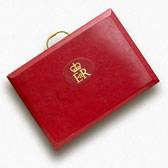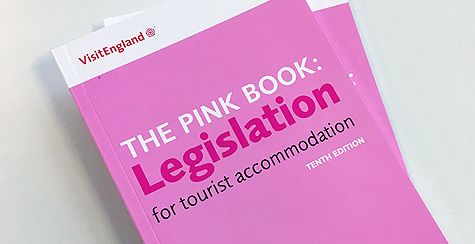
Introduction
The actions of this perverse government continue with Philip Hammond’s presentation of the 2018 Budget. A budget in which he apparently loosened the purse strings, whilst refusing to do so in the past in areas crying out for resource, just five months before a Brexit date that he is reluctant to call an opportunity and previously said he needed to save for.
Top that with a contrarian threat that if there is a Brexit shock to the economy he will, he says shock it further by tightening the purse strings again. Whilst if it goes well he will loosen more, potentially overheating the economy and certainly with no regard to the fiscal deficit that he, George Osborne and the Tory party were dying on the cross to reduce.
But down to earth and our narrow concern is how this budget has affected hospitality and small businesses and A&G personal clients here in the south west of England.
Personal Tax Rates and Allowances – ahead of inflation
Tax rates will not change, with the good news being that the personal allowance will rise by 5.5% in 2019/20 to £12,500, whilst the higher rate band will now be at £50k.
National insurance rates also do not change, but thresholds rise. The primary threshold for 2019/20 will be £8,632, meaning the NI efficient rate of pay for company directors will be £719 per month.
Despite being heralded (perhaps by pension companies looking to drum up business) there is no change to pensions allowances and the annual allowance remains at £40k.
There is no change to the dividend allowance (£2k) or basic rate – 7.5%.
The ISA investment limit sticks at £20k.
Corporation Tax and Vat – threshold static
There are no changes to Corporation Tax and the rate continues at 19%.
There are also no changes to Vat rates, or the Vat registration threshold, which stays at £85k and will fix until 2022. Vat is subject to an ongoing review with one consideration being a tapered approach to the threshold.
It’s worth mentioning that fixing of the threshold for three years is not a positive move for those businesses, such as a swathe of b&bs across the region, that trade at the threshold, that will effectively see their earning potential constrained from inflationary increases.
New Allowances for Businesses – buildings and goodwill
The Chancellor announced what may be seen as a replacement for the previously phased out industrial buildings allowance – a ‘structures and buildings allowance’. This will be on new buildings which start construction after 29th October 2018 and will be given as 2% straight line each year on the cost.
It will not be applicable to dwellings but will apply to hotels and care homes.
There will be partial reinstatement of allowance for the writing down of purchased goodwill for 2019/20. Although the details have yet to be refined. The withdrawal of this relief in 2015 became a major disincentive to incorporation of businesses from their sole trade / partnership roots, so perhaps the thought is to address this for future incorporations.
Property – principal private residence and letting relief changes
Continuing the attack on property investors, the allowable vacant period to allow principal private residence relief is halved from eighteen months down to nine. Thus if you live in a property to establish it as your principal private residence, then when you move out this status will only extend for nine months and assuming a capital gain, you will pay capital gains tax on the proportionate remainder.
The period stays as is at 36 months for individuals moved to living in a care home.
Private lettings relief, worth up to £40k or if lower, an amount equal to principal private residence relief, continues where the owner and tenant/guests live in the property. Thus no change for our hotel clients living in at the hotel.
Commercial Aspects – minimum wage, business rates and apprenticeships
Minimum Wage:
There is seemingly no let-up in the inexorable rise of the minimum wage, set to go up to £8.21 from £7.83, a rise of 4.9%.
With the employer contribution to auto enrolment pensions set to rise by 1% to 3%, taking the minimum wage and pension increases together is an inflationary cost to businesses of 5.9% from April 2019.
Structurally for the economy this is laudable as since the recession rises in wage rates have been stubbornly low, particularly given the low level of unemployment. However for businesses at the sharp end that have to make this work for them as well as the employee its no easy ask, particularly in the hospitality and care sectors where wages can represent the biggest single cost.
Business Rates:
Probably to a degree recognising the plight of high street retailers and publicans the Chancellor has announced a reduction by one third in business rates, where the rateable value of the property is below £51k.
100% rates relief continues to be available on properties with a rateable value below £12k and tapered relief to £15k.
Digressing to the bigger picture the Chancellor is introducing a digital services tax in April 2020, on the large online retailers. Details to be confirmed.
Apprenticeships:
The cost of apprenticeships for small businesses will be halved from a contribution of 10% down to 5%. As an example the training of a commis chef may fall from £900 to £450.
Duties – fuel, beer, wines, spirits
For the ninth year in a row fuel duty is unaltered.
This year in a nod to the licensed trades there is also no increase in duties on beer, cider and spirits. The clear omission here is wine, with that rate rising with inflation.
Why wine is picked on – ask the Chancellor. But you may be interested in these statistics:
The average bottle of wine costs £5.39 and of that figure only 53p is represented by wine.
At £10.00 you get £2.70 of wine. And at £20.00 your wine value is £7.03.
Perhaps we shouldn’t expect great quality on a bottle of wine that retails below say £7.00 at the very least.
MAKING TAX DIGITAL
Strictly speaking making tax digital (MTD) was not mentioned in this budget, but by not being mentioned perhaps we can assume the latest position will go ahead as planned in April 2019.
I will have mentioned this topic in a low-key manner to all clients that will be affected next April, but now for all Vat registered businesses there is a need to be aware and to start to prepare. From the next Vat return after April 2019 this will need to be submitted in a different way.
Our clients that use our recommended Liberty Accounts MTD will experience a seamless service, with the new portal accommodated by Liberty.
For clients that use one of our in-house spreadsheets, we will either need to bolt on a new interface to the spreadsheet, or alternatively the client can migrate to Liberty Accounts.
Commentary
For the first time in many a year the Chancellor has given away more than he’s taking in, with the biggest gain going to the NHS.
Leaving aside the macro-economic discussion though, the budget changes are a net gain for the individual taxpayer and small business owner that is not heavily reliant on staff costs and wine sales.
And therein lies the rub, a lot of hospitality businesses, particularly high end gastro-pub or top service hotels, have a lot of employees and sell quite a lot of wine!
Add to that some uncertainty over the long term Vat regime and threshold for the smaller operators, then you’ve got the classical curates egg budget – ‘good in parts’.
So as always, although there’s more meat here than in most recent budgets, its what individual owners do with their own businesses that really counts. Are you the best b&b in the row, or even the town, is your food just that little bit special, are your staff going the extra mile, and are you looking ahead to trends not yet introduced by your competitors?
That’s what makes you a business winner.





